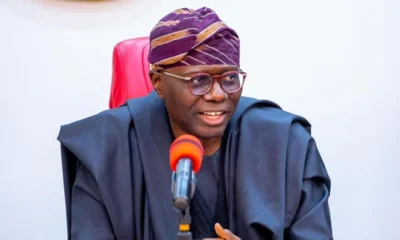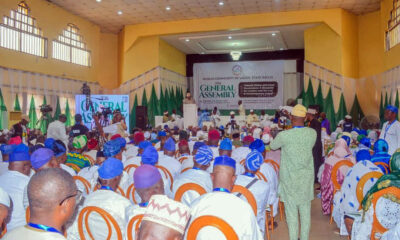News
Lagos to flag off construction of 4th Mainland bridge in 1st quarter of 2024
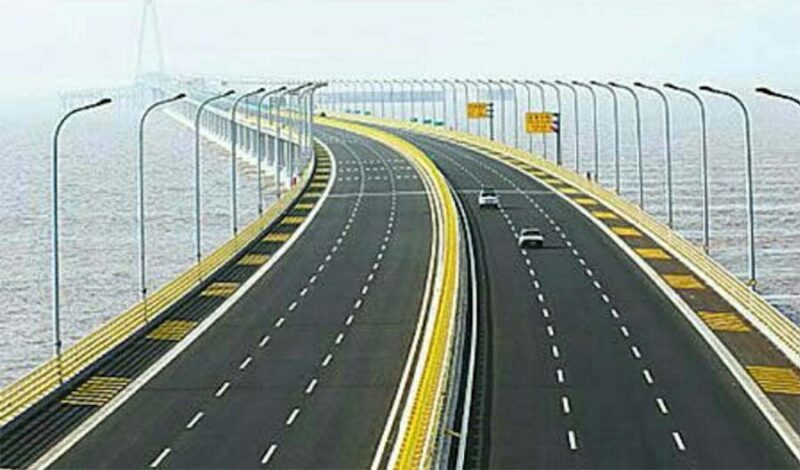
Lagos to flag off construction of 4th Mainland bridge in 1st quarter of 2024
… Experts Discuss Possible Challenges
There are indications that the Lagos State government will kick start the long-awaited 4th Mainland Bridge in the first quarter of 2024, THE WHISTLER understands.
Proposed in 2006, the project is expected to cost about $2.5 billion.
The proposed bridge is about 37 kilometres with a design speed of 140km and spans from Abraham Adesanya in Ajah to the North West towards the Lagoon shoreline of the Lagos-Ibadan Expressway through Owutu/Isawo in Ikorodu.
It is a Public-Private Partnership (PPP) project. Upon completion, it is expected to be the longest bridge in Africa with three toll plazas, nine interchanges and a 4.5km Lagoon Bridge.
Apart from opening new areas of Lagos for future developments, the project is also expected to reduce traffic congestion on the existing Carter, Eko and Third Mainland Bridges.
However, the execution of the project may face some challenges. Lagos State government had in 2015 attributed the delay in the construction of the bridge to issues around compensation, because of the number of buildings along the right of way. And had to redesign it to avoid compensations running into billions.
According to Aramide Adeyoye, a former Special Adviser on Works to Governor Babajide Sanwo-Olu, about 800 structures would be affected by the construction of the bridge.
Sanwo-Olu has about three and a half years to complete his tenure. And the 4th Mainland Bridge is one of the legacy projects he intends to complete.
Others are the 2nd phase of the Blue Line rail and Omu Creek Road, which are wholly Lagos State government projects.
Although the 4th Mainland Bridge is a PPP, the Chief Press Secretary to the governor, Gboyega Akosile, told THE WHISTLER that the government still has to put certain things in place to ensure smooth commencement of the project.
He explained that the project would have kick-started this year, but was shifted to next year because engineers were not yet done with the technical details.
READ ALSO:
- Super Eagles possess talent, capacity to succeed at AFCON, says Aghahowa
- S’Court fines Ozekhome N40m for revisiting 2019 Imo gov suit
- BREAKING: Supreme Court dismisses Ihedioha’s suit against Uzodinma
“In actual fact, we thought that we could start the 4th Mainland Bridge this year. But because they (engineers) are still working on the technical details, we can’t do the turning of the salt this year. So it has to be next year. And I want to believe it would be first quarter of next year,” Akosile told THE WHISTLER.
“The 4th Mainland Bridge is a PPP model they’re working on. But the Blue Line – the second phase of it – it’s still going to be PPP, but it’s a wholly Lagos State government project. And the Omu Creek Road – that one is also a wholly Lagos State government project.”
Preferred Bidder
In December 2022, the state government announced Messrs CCECC-CRCCIG Consortium as the preferred bidder for the proposed bridge.
The state had in November 2019, called for bidders, with a total of 52 responses received. Out of this, 32 were responsive.
According to the former Special Adviser to Sanwo-Olu on PPP, Ope George, after the evaluation of the Request for Quotation (RFQ), six bidders were selected to progress to the Request for Proposal (RfP) phase with CCECC-CRCCIG Consortium being chosen as the preferred bidder.
“You will recall that the Lagos State government commenced a Competitive Bidding process for the selection of a Concessionaire, by the issuance of the Request for Expressions of Interest (REOI) on 27th of November, 2019. A total of 52 responses were received with 32 being responsive,” George had said during a briefing.
“Subsequently, a Request for Quotation (RFQ) was issued on 10th February 2020 to the 32 eligible applicants and responses were received on 15th April, 2020 with a total of 15 responses. Upon evaluation, six bidders met the criteria to progress to the Request for Proposal (RfP) stage”, he added.
George explained that while Messrs. CCECC-CRCCIG Consortium emerged as the preferred bidder, Messrs. Mota-Engil (Nigeria & Africa), CCCC & CRBC Consortium is the reserved bidder for the project.
The PPP agreement is a 40-year plan for the concessionaire to operate and maintain the bridge, in order to recoup investment on the project.
But this is not the first time significant progress had been made on the project only to be stalled. In May 2016, former Governor Akinwunmi Ambode, signed a Memorandum of Understanding (MoU) with a consortium of firms and finance houses comprising of Africa Finance Corporation (AFC) and Access Bank, Julius Berger Nigeria Plc, Nigerian Westminster Dredging and Marine, J.P. Morgan, Hi-tech Construction Limited, Eldorado Nigeria Limited, and Visible Asset Limited.
However, the government announced in May 2017, that the deal had been cancelled, citing delay by the consortium to kick start the project as the reason for its decision.
$1.352bn Partnership With Afrexim, Access Banks
In October, Lagos secured a partnership deal with the African Export-Import Bank and Access Bank for an investment of $1.352 billion in the state.
READ ALSO:
- Military clarifies drone attack on Kaduna community
- How I lost 34 family members to Kaduna bombing – Resident
- Allow us return to parks, NURTW tells Oyo, Ondo, Osun govs after peaceful conferences
The agreement was signed at the Africaribbean Trade and Investment Forum 2023, held in Georgetown, Guyana.
The fund would facilitate Lagos’ various long-term infrastructure and investment projects, including the 4th Mainland Bridge.
Other targeted infrastructure projects to be financed with the fund are: Omu Creek Project, and the 2nd Phase of the LRMT Blue Line from Mile 2 to Okokomaiko.
“It was a significant moment in Guyana at the Africaribbean Trade and Investment Forum 2023 as we’ve secured a partnership with the African Export-Import Bank and Access Bank for a massive investment of $1.352 billion in Lagos.
“This investment will power our long-term infrastructure projects, demonstrating confidence from international and local partners in our growing economy.
“As we move forward, this investment will help us realize key projects, including the Fourth Mainland Bridge, Omu Creek Project, and the 2nd Phase of the LRMT Blue Line from Mile 2 to Okokomaiko. We’re committed to creating a better future for Lagos and its people.
“Our vision for Lagos is becoming a reality with the Lekki-Epe International Airport and the Lagos Food Systems and Logistics Hub in Epe. These projects will further boost our economy and serve generations to come.
“The future of Lagos is brighter than ever,” Sanwo-Olu said via his social media handles.
Possible Challenges
A PPP expert, Dr. Chukwuma Katchy, identified two possible challenges the project may face.
The challenges, he said, are incapability of public sector to implement PPP projects and issues around bankability of the project.
“It will face both the challenges all projects face and challenges peculiar to PPP projects. One of the greatest challenges as a PPP project is lack of public sector capacity to implement PPP projects.
“Another major problem is bankability of the project. Bankability refers to a project being structured in a manner as to attract lenders to lend money to the project under project finance kind of lending,” Chukwuma told THE WHISTLER.
He recommended training for public officials that would be involved in the implementation of the project and constant engagement of the public through communication.
“It’s difficult to recommend from outside but my advise is that the public officials involved in the implementation be trained up to being certified by APMG as Certified PPP Professionals (foundation) minimum .
“Secondly, there should be greater public communication by constantly briefing the public every three months,” Chukwuma said.
Highlighting the positives under PPP arrangement, the retired commissioner of police said it reduces the government’s financial and administrative burdens in a project.
READ ALSO:
- Israel intensifies southern offensive as communication blackout hits Gaza
- Police parade wanted cultists who buried CDC chair alive in Rivers
- Rescue my daughter, father of kidnapped 13-year-old schoolgirl, pleads with police
Emeka Ibe, a Managing Consultant at James Daniel Consulting, listed legal framework agreeable to the two parties and the macroeconomic environment as possible challenges.
“One of the major challenges of a PPP is to have a proper legal framework agreeable to the two parties.
“Secondly, the macroeconomic environment will always provide constant challenges,” Ibe told THE WHISTLER.
Touching on the positives under PPP arrangement for building of infrastructure, he said: “There are positives in any properly contracted PPP project, and the major one is that the government can realize its major project without necessarily providing the funding.
“Additionally, the private partner will provide its capital and expertise and will most likely complete the project on schedule.”
Ibe maintained that a properly designed PPP is mutually beneficial to all its stakeholders and should be supported.
Also speaking with THE WHISTLER, John Davie, the Chairman of an independent advisory group, Altra Capital, mentioned that PPPs have failed in Lagos in the past, citing Lekki-Epe Expressway PPP, which was awarded in 2003. While construction started in 2006, Davie said financial closure was not reached until two years after. He described it as a ‘classic mistake’.
He explained that because the state did not employ external, legal, financial or technical advisors for Lekki-Epe Expressway PPP, mistakes were made.
Davie, however, pointed out that Lagos has learned from its mistakes and has “proceeded very professionally” with the proposed 4th Mainland.
The author of “The PPP Book: Public Private Partnerships Unbundled”, described the engagement of KPMG as advisers for the project as a good decision.
He said: “PPPs involve long term liabilities. I believe in the 4th Mainland Bridge PPP involves a concession for around 40 years. Sizeable PPP projects require large private sector investments with both significant equity investment, which will be at risk, as well as long term debt. The overall financial commitment for the 4th Mainland Bridge will be around US$ 2.2bn. In a PPP structure the government does not usually provide the in initial construction cost.
“However PPPs have failed in Lagos in the past. By contrast the Lekki-Epe Expressway PPP, awarded in 2003, was undertaken prior to Nigeria’s PPP regulations. Construction began in 2006 before financial close which did not occur until 2008. That is a classic mistake. Lagos State Government provided a guarantee which was backed by Federal government.
“Unlike the new 4th Mainland Bridge PPP, Lagos State Government did not employ external, legal, financial or technical advisors and did not have a proper financial model for the project. There were many mistakes including government interference and indecision, all of which resulted in Lagos State Government having to buy out private sector. Anyone who has listened to the capacity building lectures which I have given over several year in Nigeria will know that this could all have been avoided.”
To ensure that PPP for infrastructure like the 4th Mainland Bridge works, Davie who is a visiting professor at the Guildhall School of Business and Law, London Metropolitan University, said it has to be well structured and regulated.
“Success requires a careful balance between risk and reward: PPPs that do not transfer risk, and thereby benefit from the private-sector’s risk-management capabilities, are likely to disappoint. So, the public sector must commission a very thorough and detailed feasibility study as a first step,” he said.
“With appropriate contract conditions and a sound procurement process a PPP for the 4th Mainland Bridge should be a success. Lagos State Government has addressed this project in a thorough professional and competent way.”
News
INEC May Adjust 2027 Election Dates Over Ramadan Concerns
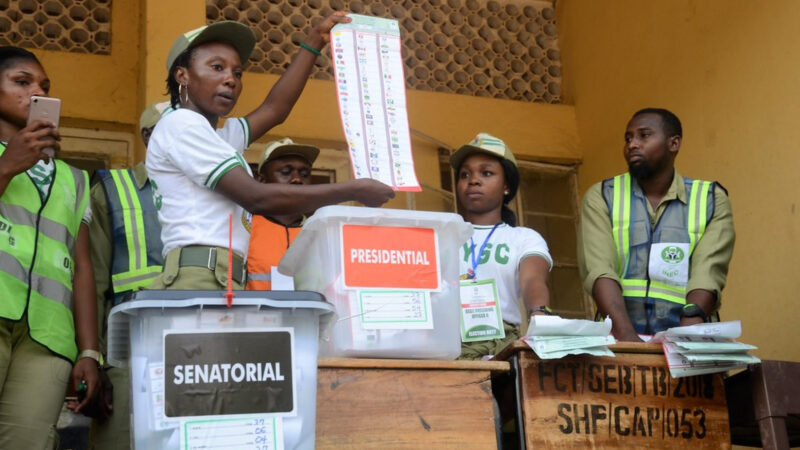
INEC May Adjust 2027 Election Dates Over Ramadan Concerns
The Independent National Electoral Commission (INEC) has acknowledged growing concerns over the timing of the 2027 general elections, which currently coincide with the holy month of Ramadan, and said it may seek legislative intervention if necessary to ensure full electoral participation.
In a statement released on Friday, INEC National Commissioner and Chairman of the Information and Voter Education Committee, Mohammed Kudu Haruna, said the commission is sensitive to public concerns and is consulting with stakeholders on possible adjustments to the election timetable.
The commission explained that the current schedule, developed in strict compliance with the Constitution of the Federal Republic of Nigeria, 1999 (as amended), the Electoral Act, 2022, and INEC’s own Guidelines and Regulations for the Conduct of Elections, 2022, sets Saturday, February 20, 2027, for the presidential and National Assembly elections, and Saturday, March 6, 2027, for the governorship and State Houses of Assembly elections. Party primaries are slated for May 22 to June 20, 2026.
READ ALSO:
- Man Allegedly Kills Brother in Rivers Over Witchcraft Accusation
- Regina Daniels Gifts Mother Two Luxury SUVs in Emotional Surprise
- El-Rufai Alleges Ribadu Ordered Arrest, Says Intercepted Calls Exposed Plot
However, INEC noted that these dates overlap with Ramadan, a period of fasting, prayer, and religious observances for Muslims, which could affect voter turnout and participation, particularly in predominantly Muslim areas. The commission emphasized that any adjustment to the timetable will remain consistent with constitutional and statutory requirements.
“The commission wishes to assure the public that it remains sensitive to all legitimate concerns that may impact electoral participation and the overall conduct of elections. In view of these representations, INEC is currently undertaking consultations and may, where necessary, seek appropriate legislative intervention,” the statement read.
Several political figures have already expressed concerns. Former Vice President Atiku Abubakar called on INEC to reconsider the February 20 date, citing potential disruption of voting during Ramadan. Former presidential aide Bashir Ahmad also urged the commission to review the schedule to avoid disenfranchisement of Muslim voters.
The commission reaffirmed its commitment to conducting transparent, credible, and inclusive elections. It promised to keep the public informed of any adjustments to the election timetable arising from consultations with political parties, civil society, and religious stakeholders.
The debate over the 2027 election schedule highlights the challenges of balancing constitutional timelines with religious and cultural sensitivities, underscoring the importance of ensuring accessible and fair elections for all Nigerians.
INEC May Adjust 2027 Election Dates Over Ramadan Concerns
News
2027 General Elections: INEC Announces February 20 for Presidential Poll
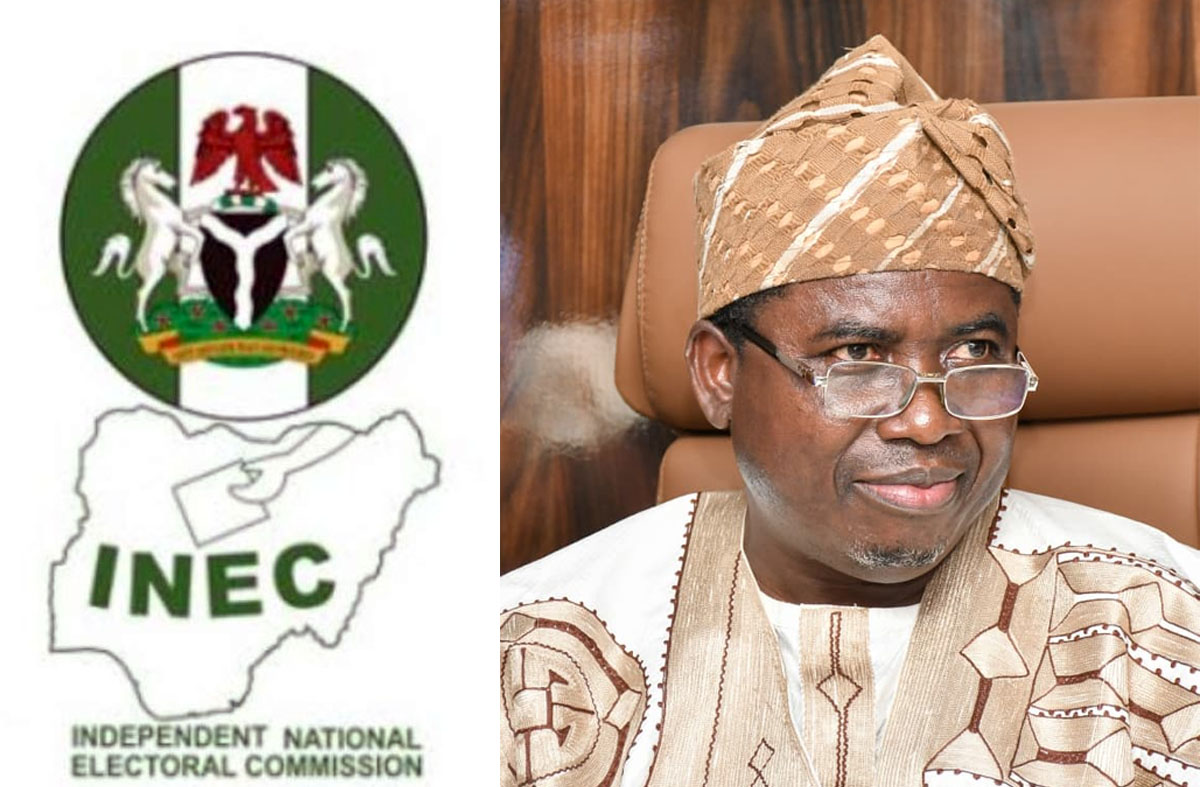
2027 General Elections: INEC Announces February 20 for Presidential Poll
The Independent National Electoral Commission (INEC) has officially fixed February 20, 2027 for Nigeria’s presidential and National Assembly elections, while governorship and State Houses of Assembly elections will be held on March 6, 2027.
INEC Chairman, Joash Ojo Amupitan, announced the dates on Friday during a media parley at the Commission’s national headquarters in Abuja, describing the move as the formal commencement of the 2027 general elections process.
According to the INEC chairman, the release of the Notice of Election and the comprehensive timetable complies with provisions of the 1999 Constitution of Nigeria and the Electoral Act 2022, which require the Commission to publish election notices ahead of the polls.
“It is with a deep sense of constitutional responsibility and commitment to democratic consolidation that the Commission today formally releases the Notice of Election and the Timetable and Schedule of Activities for the 2027 General Elections,” he stated, adding that any earlier unofficial announcements of election dates were misleading and did not originate from INEC.
READ ALSO:
- EFCC Nabs Three in Borno Over Viral ₦500 Naira Mutilation Video
- Omokri Accuses El-Rufai of Rights Abuses During Kaduna Governorship
- Lagos Motor Fair, Autoparts Expo to begin March 17, targeting Investment, Industry Growth
Amupitan disclosed that the tenure of the President, Vice President, governors, and deputy governors — except in off-cycle states — will expire on May 28, 2027, while the National and State Assemblies will be dissolved on June 8, 2027. He noted that the timeline provides sufficient room for political parties to conduct primaries, submit nomination forms, and organise campaigns in line with electoral regulations. Campaigns, he added, must end 24 hours before election day, as stipulated by law.
The INEC boss warned political parties to strictly comply with the approved schedule, stressing that the Commission would enforce the law where necessary. “Political parties are strongly advised to strictly adhere to the timelines. The Commission will not hesitate to enforce compliance with the law,” he said.
He also reaffirmed INEC’s commitment to deploying technology to enhance transparency in the 2027 general elections, updating the national voters’ register, strengthening collaboration with security agencies, and expanding voter education nationwide.
Calling for peaceful conduct, Amupitan urged political parties to organise credible primaries, shun violence and inflammatory rhetoric, and uphold internal democracy. He also appealed to candidates, supporters, civil society groups, the media, and citizens to play constructive roles throughout the electoral cycle.
“As we commence this national exercise, I assure Nigerians that the Commission is fully prepared and determined to deliver elections that reflect the sovereign will of the people,” he added.
With the formal release of the INEC 2027 election timetable, stakeholders are now expected to begin full-scale preparations for Nigeria’s next general elections.
2027 General Elections: INEC Announces February 20 for Presidential Poll
News
INEC Seeks N1.04 Trillion for 2027 Elections, Operational Needs – Amupitan

INEC Seeks N1.04 Trillion for 2027 Elections, Operational Needs – Amupitan
The Independent National Electoral Commission (INEC) has requested a total of ₦1.04 trillion from the Federal Government of Nigeria to fund off-cycle elections this year, the 2027 general election, and its operational activities in 2026, subject to approval by the National Assembly of Nigeria.
The request was made by INEC Chairman Prof. Joash Amupitan while defending the commission’s spending proposal before the Joint Committee on Electoral Matters of the National Assembly. Amupitan urged lawmakers to grant timely approval and release of funds, warning that delays could hamper preparations for upcoming elections.
According to the INEC chairman, the commission is seeking ₦873.778 billion for the 2027 general election and ₦171 billion for its 2026 operational activities. The 2026 allocation covers Federal Capital Territory (FCT) area council elections, by-elections scheduled for next week, and the Ekiti and Osun governorship elections slated for June and September.
READ ALSO:
- Alake: Killers of Mining Marshal Will Face Full Wrath of the Law
- Lagos Police Launch Manhunt for Suspect in Brutal Ajah Murder
- Lookman Shines as Atlético Madrid Hammer Barcelona 4-0
Breakdown of the 2027 Election Budget
The N873.778 billion earmarked for the 2027 general election includes:
- ₦379.748 billion for operational costs
- ₦92.317 billion for administrative expenses
- ₦209.206 billion for technology
- ₦154.905 billion for election capital costs
- ₦42.608 billion for miscellaneous expenses
For the N171 billion proposed for 2026 operations, Amupitan said:
- ₦109 billion would cover personnel costs
- ₦18.7 billion for overheads
- ₦42.63 billion for election conduct
- ₦1.4 billion for capital expenditure
He noted that the budget was prepared in line with Section 3(3) of the Electoral Act 2022, which mandates submission of election budgets at least one year before a general election.
Calls for Timely Fund Release and Dedicated Network
Amupitan criticized the envelope system of budgeting, describing it as unsuitable for INEC’s operational needs that often require urgent interventions. He appealed for a bulk release of funds, highlighting the need for a dedicated communication network to enhance accountability and transparency during elections.
“If we have our own network, Nigerians can hold us responsible for any hitch,” he said.
Lawmakers Back INEC’s Proposal
Senator Adams Oshiomhole argued that no government agency should impose the envelope budgeting system on INEC, emphasizing that full release of funds is critical for smooth election preparations. Similarly, House member Billy Osawaru called for the budget to be placed on first-line charge, allowing the commission access to all funds immediately.
Following deliberations, the joint committee approved a one-time release of INEC’s annual budget and pledged to consider increasing allowances for National Youth Service Corps (NYSC) members deployed for election duties. The proposed increase would cost ₦32 billion, equating to ₦125,000 per corps member.
Senator Simon Lalong, chairman of the Senate Committee on Electoral Matters, assured INEC of lawmakers’ support, pledging close collaboration to ensure a successful 2027 election. House Committee chairman Bayo Balogun also promised legislative backing but cautioned INEC against overpromising, citing prior misrepresentations about real-time uploads to the INEC Result Viewing (IReV) portal, which was never provided for in the Electoral Act but only in INEC regulations.
The approval of the commission’s budget and operational requests is expected to enhance election preparedness, technological deployment, and transparency ahead of the 2027 general elections, while addressing logistical and operational challenges that have hampered past polls.
INEC Seeks N1.04 Trillion for 2027 Elections, Operational Needs – Amupitan
-

 metro3 days ago
metro3 days agoIKEDC Sets Feb 20 Deadline for Customers to Submit Valid IDs or Face Disconnection
-

 Education3 days ago
Education3 days agoSupreme Court Affirms Muslim Students’ Right to Worship at Rivers State University
-

 metro2 days ago
metro2 days agoLagos Police Launch Manhunt for Suspect in Brutal Ajah Murder
-

 News2 days ago
News2 days agoAso Rock Goes Solar as Tinubu Orders National Grid Disconnection
-

 Business3 days ago
Business3 days agoNaira Could Trade Below ₦1,000/$ With Dangote Refinery at Full Capacity — Otedola
-
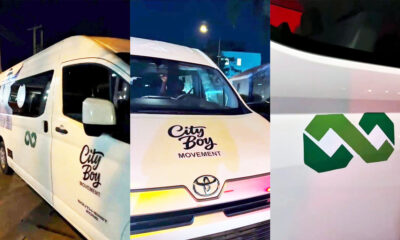
 Politics3 days ago
Politics3 days agoCity Boy Movement Receives Bus Donations from Zenco, Obi Cubana for Tinubu’s Campaign
-

 metro3 days ago
metro3 days agoArmy University Professor Dies in Boko Haram Captivity After Nearly One Year
-

 International3 days ago
International3 days agoTrump Halts Minnesota Immigration Crackdown After Fatal Shootings, Protests



